Transforming Fear into Faith and Courage
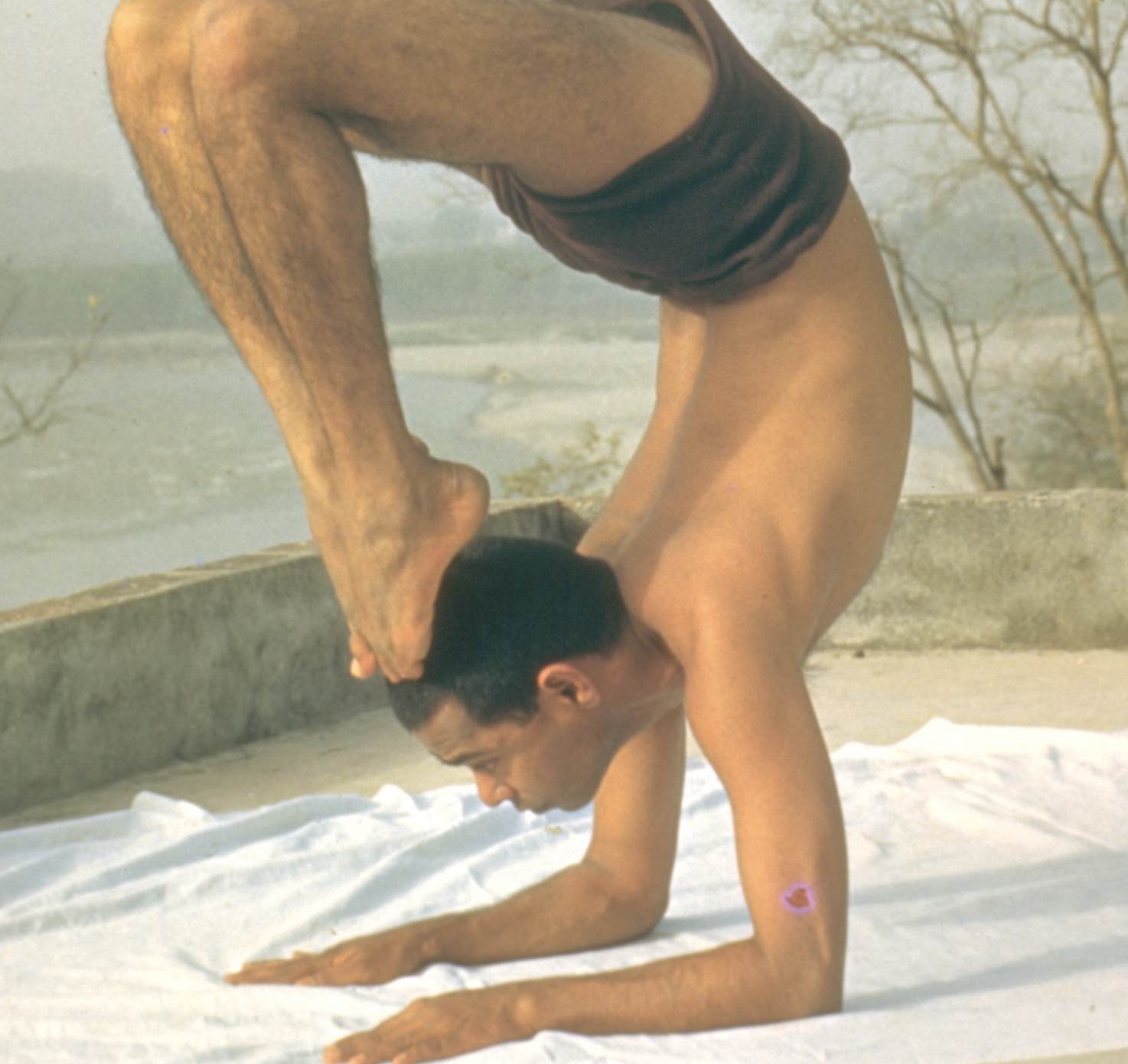
Modern Stress can be overwhelming.
Sat Chit Ananda
This absolute positivity can be achieved by an individual, however, the moment that you achieve it, you no longer remain in an individual existence. At that time, all idea of separation and division would disappear, as the individual consciousness merges with the Supreme Consciousness.
How we would achieve this sublime state of consciousness without having any concept of it?
In truth, this absolute consciousness is all pervading and yet is beyond the mind’s concepts. Technically, the mind and intellect are limited and can not perceive something beyond itself, let alone have a relationship with it. This is the reason why, the sages talked about devoting oneself to the highest ideal or form of the divine that the mind can conceive.


Stress can come on at any time.
Our Highest Ideal
It is easier for us to love someone and become like he or she. In fact, being a human being, we need to see the perfection alive in a human being.
This idea or ideal needs to become embodied for us to relate to and to emulate. The nature of our emotional mind is that it is easier for us to love someone and become like he or she, by the power of love and absorption.
In fact, we become what we think a lot about. We like to idealize and to be attached to someone we think is morally superior to us. We are ready to follow advice from them.
Therefore, there is the idea of a personal concept of God, Ishwara, for us to be dedicated to. Different minds need different types of teacher. Therefore, we are encouraged to seek for our own chosen ideal (ishta devata).
Truth is One
We do not need to compare ourselves with others who have different paths then ourselves. “Names and forms are many, Truth is one”. “ Paths are many, God is one”.
Ultimately, not only we have an abstract idea of the Ideal and the Truth, but we have also the live example in human form of this ideal person we can become. This is the ultimate power of positive thinking.
Faith is positive thinking
Faith in the Supreme Intelligence comes from an inner feeling that there is something greater than you, a supreme being that indwells one’s essential spirit. When one is enriched with abiding faith one is able to recognize the divine grace operating in all things. In summary, we are on a journey of self-discovery to uncover the truth of who we are, a journey guided by faith.
We can think of faith as the power of positive thinking that carries us from one experience of grace to the next. Fear exists when we don’t know the Self (the Atman). We must rely on faith to progress on the spiritual path until we have knowledge of the Self from our own direct experience.
The more we progress and the greater our connection with the truth within, the Atman, the more faith we will have. Over time we will need less faith as faith is gradually replaced by knowledge of the Self. Ultimately faith is replaced by direct experience of the Self. It is then we can say, “I know.”

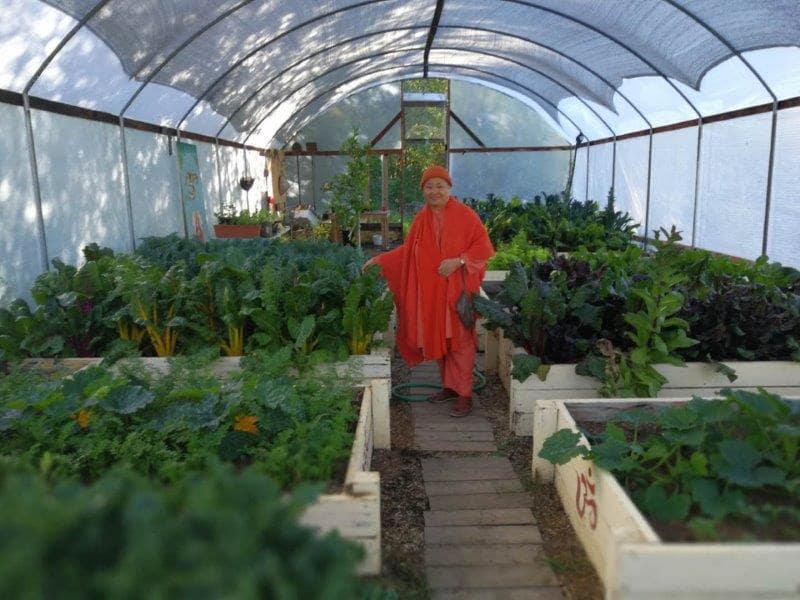
Above – Learn to relax by spending time in nature and practicing yoga.
True Knowledge
Where is knowledge coming from? In my earlier days, I experience that knowledge can be glimpsed intuitively. At that time, I observed that people around me were unhappy and miserable. Even when I was able to help improve their circumstances, they didn’t seem to be any happier. But somehow, I had the thought that there must be a place that wasn’t like this where people practiced the power of positive thinking.
I went searching, thinking at first this place must be outside of the city, so I moved to the country. I found it was not in the country either, and guessed it must be in the ashram. It soon became apparent it wasn’t even in the ashram.
Where is this Satchidananda, or knowledge? Of course, knowledge or truth reside inside of us, but it is a long hard journey to turn within to find it, as we are always looking outside of ourselves. This journey of turning within to find the Highest Ideal within and without must be sustained by considerable faith.
As a matter of fact, we lack experience in the beginning of our journey. However, although we do not really have a clue where we are going, faith keeps us going. This is why we need a teacher to help show us the way to face our fears and to understand the power of positive thinking.
Fear is Unreal
Fear is a very strong primitive emotion, present in all animals. Fear serves a very basic purpose: to help us to survive. If we were Self-realized we would know there is no danger to our survival, since we are not the individual body that we think we are. In fact, fear arises out of an external view of reality. Fear is caused in us by things that appear unfamiliar or situations beyond our immediate understanding. Fear creates imaginations of darkness, of falling and distorts the mind.
Therefore, Fear is based in unreality, in Maya. It comes from our attachment, our grasping on to illusory things and beliefs. We need to think a little about the effect of fear. Being fearful or anxious means we are attached. Being attached means we are stuck, bogged down, we lost our freedom; If we are afraid, we are incapable of letting go of the things that are no longer relevant or helpful to our growth.
We become paralyzed and lose our faculties when we are fearful. We freeze, unable to do anything to solve our problem. There was a time years ago, I stumbled on a horror movie on TV. I was so scared! And yet, I could not do anything, not even capable to move three feet to turn off the TV. I was paralyzed with fear. This is a small example but illustrates the point; even the simplest situations that arise can stop us in our tracks because of our illusory fearful thoughts.
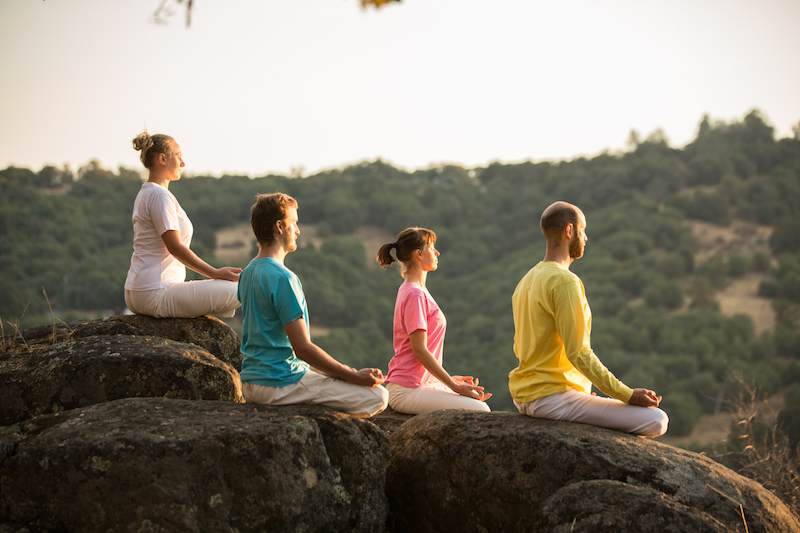
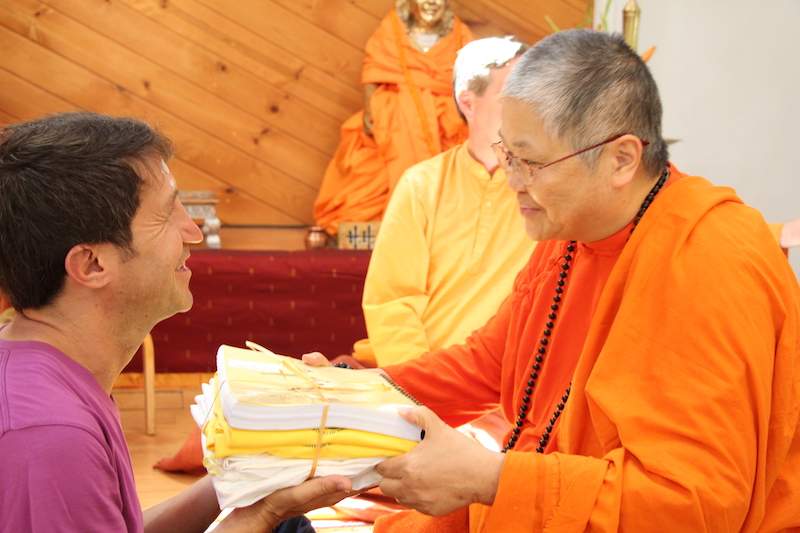
Practicing Meditation and Positive Emotions we can heal ourself.
Anxiety blocks the way to knowledge
Anxiety is even worse than fear, because unlike fear we cannot identify its source. Anxiety is fear that has no name. With anxiety, there is no creativity, no productivity, we are depressed and our minds lose the capacity to think clearly.
Now, consider the analogy in which the sun is the Atman and anxiety is a storm of clouds covering the sun. There are days when clouds fill the sky and we can’t see the sun. Yet we know it’s there behind the layer of clouds.
From time to time as the clouds pass overhead we may catch a glimpse of the sun’s brightness or feel its warmth for a moment. In the same way, the Atman is always shining within us, untouched by the clouds of fear and anxiety that we experience.
Conclusion
In summary, loose life and indulgent life is not relaxation, but a conscious, content and simple life is true relaxation and happiness.
The science of relaxation leads to spiritual relaxation, a state of freedom and joyfulness when there is no expectation or desire of anything. Instead of anxiety, we experience detachment, contentment and fulfillment .
Upcoming Stress Relief and Relaxation courses at the Sivananda Yoga Farm that teaches these techniques.
6 Comments
Trackbacks/Pingbacks
- 1What is Yoga meditation?I’m so surprised to know that more and more people are understanding that yoga is meditation and meditation is yoga. Now people become more educated, and know that yoga is not just only exercise. With this kind of exercise, or y - […] Meditation can not come with fears or desires. Courage and faith are needed to face and experience the unknown…
Submit a Comment
Follow us
[et_social_follow icon_style=”slide” icon_shape=”rounded” icons_location=”top” col_number=”2″ counts=”true” counts_num=”0″ outer_color=”dark”]

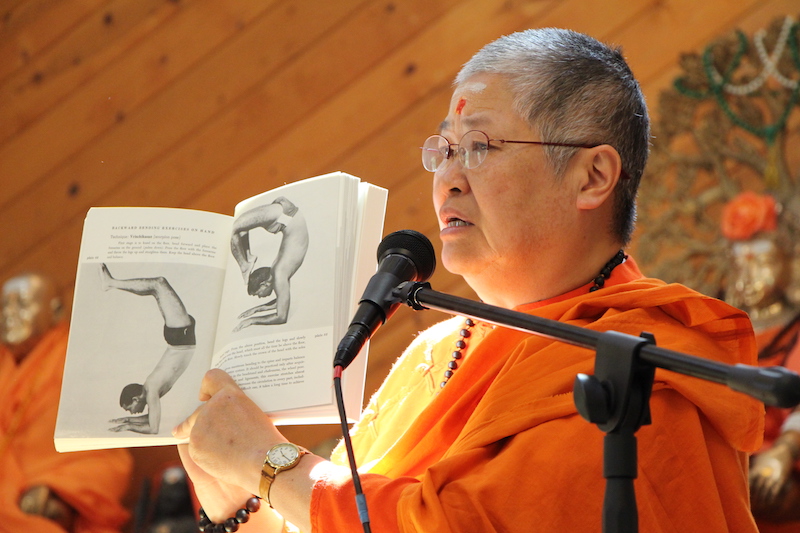
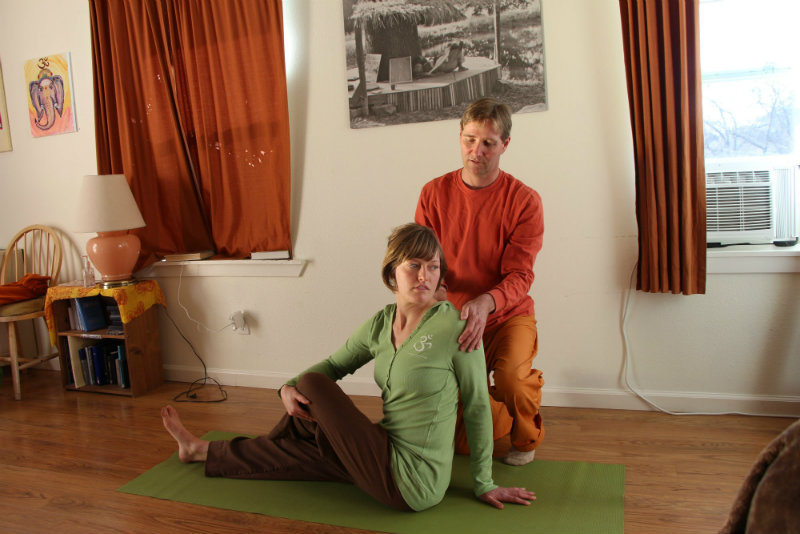

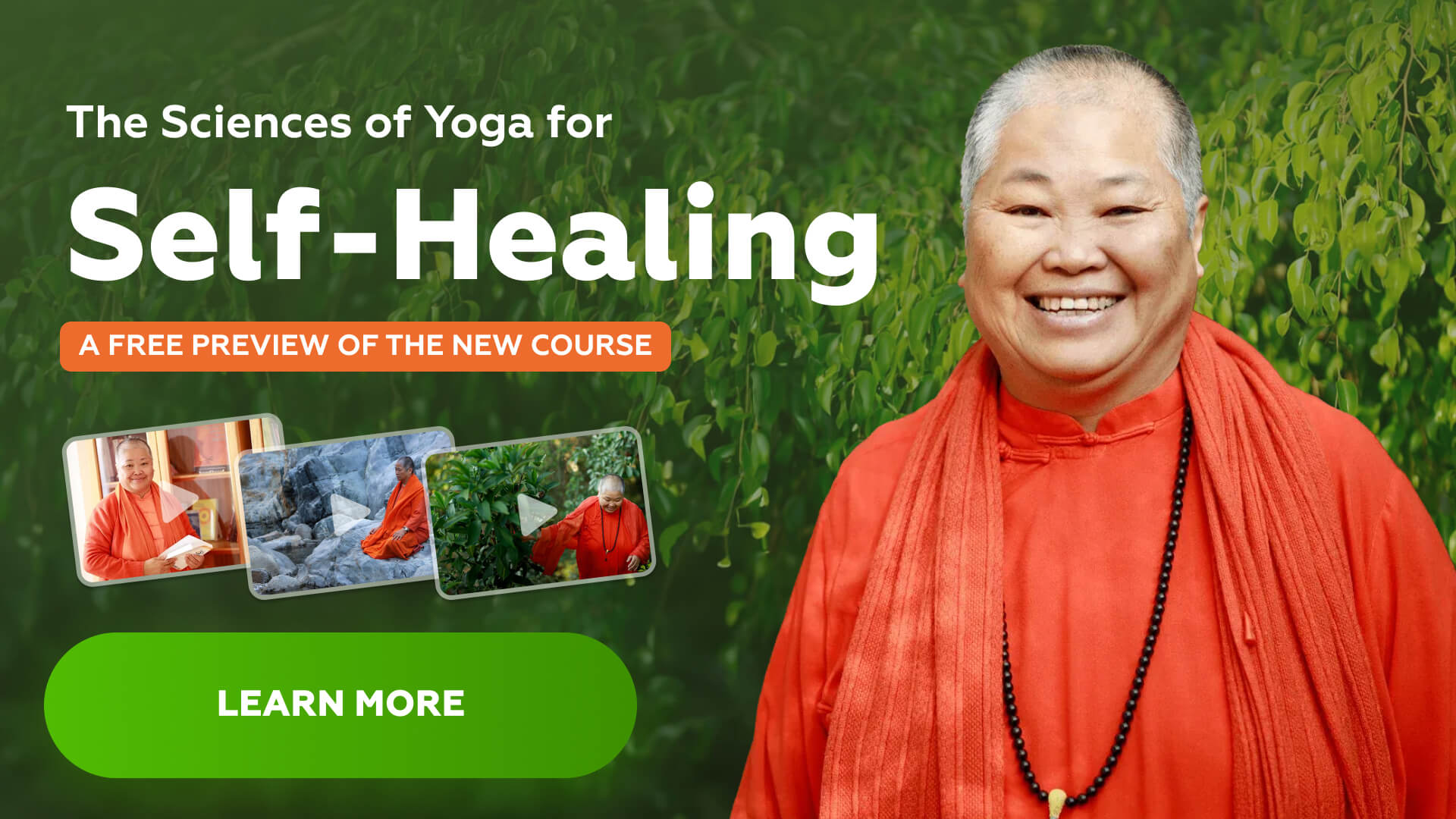
Beautiful thank you
Glad you enjoy the article.
Thank you for the information about the difference between what we can know as God and can’t know as God. Isvara vs Brahman. What our minds can deal with vs can’t deal with. Christ, Bhudda vs what Brahman is.
Yes this is very important wisdom to know!
What about job / housing anxiety? When you struggle to pay high rents to house your Spouse and two children while your landlords go on pleasure cruises? You have PTSD and social anxiety and depression and your neighbors disturb your sleep every night.
You feel you have no future, only a poverty-stricken cancer death in a cruel world, and you are not even allowed to kill yourself because religions say you will end up worse off?
What do you do then?
I understand, life seems unfair and our sufferings seem real. I do not mean to be preaching to you, and we are sending you om shanti 3 times, first peace to the thoughts from within yourself that disturb you from your peace, 2nd om shanti is for all those connected to you that might disturb your peace and third, om shanti for the whole world. It helps to count our blessings and to practice gratitude.